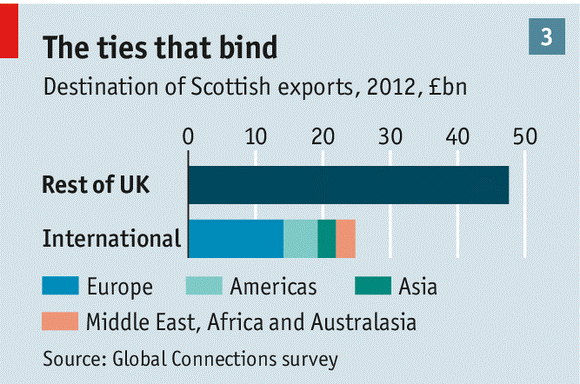FORGING AHEAD: A MICRO BUSINESS REVOLUTION
An economic transformation is infolding before our eyes. Politicians are fixated on flawed measures of economic performance. But outside of these a micro business revolution is taking shape.
It is re-shaping our economic universe and helping to turn the business cycle. The economy that emerges from the aftermath of the global banking crisis will be one quite different in composition and dynamic from the economy that entered the downturn six years ago…
Yesterday saw the publication of a report containing some extraordinary figures on the changing composition of our business base. The report, Growing Your Business, is the second submitted by business adviser Lord Young to Prime Minister David Cameron to help “fire up business growth” in the UK.
The report focuses on micro-businesses - those with fewer than 10 employees and which make up 95 per cent of all businesses in the UK.
Why do start-ups and SMEs matter so much? Policymakers have long agonised about the dearth of enterprise and our poor rate of business formation. But a massive change has long been unfolding – and it is gathering pace.
Back in 1971 an official report by the industrialist John Bolton identified 820,000 small firms across the UK. By 2000 official estimates put the number of small firms at 3.5 million.
By 2008 this figure had risen to 4.26 million. And the figure has since risen further. It now stands at a record 4.8 million, with a net rise of half a million small firms since the onset of the financial crisis and recession.
According to the report, the number of micro businesses (those with up to nine staff) is up 40 per cent since 2000. They account for 95.6 per cent of all businesses, employ 7.8 million or 32 per cent of private sector workers and account for 20 per cent of the turnover of the private sector.
As if these numbers are not startling enough, they continue to grow. According to Start-Up Britain, the number of new business start-ups across the UK so far this year totals almost 194,000 and is rising at more than 10,000 a month
These statistics amply bear out the raison d’etre of Scot-Buzz to serve this growing universe of start-ups and SMEs in Scotland and to alert policymakers of their critical importance in driving the business cycle.
And we re-iterate our call for a Start-Up Scotland campaign, with more timely figures collated by the Scottish government and for the enterprise department to have a special SME policy advisory unit.
Small firms are a much under-estimated source of employment, innovation and enterprise in the economy. Keynesians – and these extinct volcanoes still rule the roost in Scotland - sneer at the contribution of SMEs. They overlook the critical role that they play in driving the business cycle.
A key factor in the acceleration of start-ups has been the impact of profound changes in information technology and opportunities created by the internet. It has never been easier to set up a business, with the internet enabling greater access to markets, advice and guidance, marketing opportunities and cost savings than previously feasible.
Keynesians argue that only giant public works projects can kick-start economies out of recession. But it has always been the case that a recession can be a good time to grow a business. Competitors who fall by the wayside enable well-run firms to expand and increase market share. Factors of production such as premises and labour can be cheaper and higher quality, meaning that return on investment can be greater.
Research shows that well over half of the companies on the 2009 Fortune 500 list (a yearly ranking of America’s largest businesses) began during a recession. World renowned firms such as GE, Microsoft and Disney all started during a recession.
The task now is to convert these micro businesses into fully fledged firms. Of the total of 4.8 million enterprises, no fewer than 3.6 million are sole traders without employees. The purpose of the report is to help the sole trader take on his or her first employee, and the micro firms to expand and grow their business.
Says Lord Young, “If just half of the UK's micro businesses took on an additional member of staff, unemployment would be reduced to almost zero. We need to raise the aspirations and confidence of these businesses and give them the tools to grow."
The report is of particularly sharp relevance to the small business sector here.
The report wants reforms to make it easier for small businesses to bid for £230 billion a year of public sector contracts.
It calls for abolition of the age cap on access to taxpayer-funded loans to start up in business so that those over 30 can be eligible.
It urges the creation of a £30 million voucher scheme to encourage firms to get expansion advice. And it suggests a greater role for business schools in the local economy.
The report bristles with statistics and sensible, practical, do-able recommendations for change. And there is much here that the Scottish government could emulate – not least in appointing a high profile small business adviser to help formulate policy on business start-ups and SMEs, push through reform and provide a regular feedback on progress achieved.
the Scottish government proclaims its support for small businesses. But only13.5 per cent of total public contract spend in Scotland is awarded to Scottish SMEs, little wonder loud calls persist for further reform of the way public contracts are awarded.
The problem has just been highlighted in a brilliant report in the Sunday Herald by the paper’s Business Editor Colin Donald.
He tells how Scottish government gold-plating of European Union rules requires the completion of Pre-Qualification Questionnaires (PQQs) for companies even to be allowed to apply for government work – with no guarantee that they will get any.
In a truly Kafka-esque outcome, “much of this time-consuming work”, he reports, “is now outsourced to specialist form-fillers, expert in the latest buzzwords.” Project procurement can require officials (there are 130 of them in the Scottish Procurement Commercial Directorate) to read 60 PPQs, each of them up to 30 pages long.
Companies who put themselves through the tortuously complex process complained of errors in the government’s tender responses. Said one, “Many of the questions you are forced to answer in the tender are about accuracy and timeliness of delivery. These are exactly the things the Scottish government have got wrong themselves.”
The report says “long simmering resentment and mutual distrust” now characterises relations between business people and officials. A particularly fraught area is public construction work where contracts worth £2.4 billion were up for procurement in 2010-11. But the box-ticking system is heavily biased against small and medium sized companies in favour of giant firms from elsewhere in the UK.
To be fair, the Scottish government has been working for two years to improve the system and can report some tangible progress. But Colin’s article is no lone voice in the wilderness. It captures exactly the frustrations felt by SMEs and business organisations across Scotland.
One grim statistic supplied to the Sunday Herald sums up the result of this bureaucratic treacle-treading: 98.3 per cent of Scottish businesses that are SMEs (those with up to 49 employees) are awarded only 13/5 per cent of the total public spend in Scotland in 2010-11, and 14 per cent in 2011-12.
The full report is available here on the UK government’s website. It is a must read for all interested in business and economic growth today.




